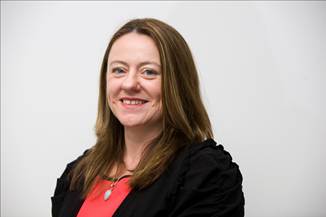

Economy
Sustainable financial advice: IFA Helen Tandy on values-based investment
Helen Tandy, financial adviser at Manchester-based Gaeia, gives advice to clients on sustainable, responsible and ethical investment.
Speaking to Blue & Green Tomorrow, she tells of the increasing trend of people wanting to do good with their money.
How did you get into sustainable, responsible and ethical financial advice as opposed to financial advice more generally?
I started my financial services career with a building society and, although I really enjoyed my work and the team, I was starting to feel as though there was something ‘missing’. I was trying to lead a more sustainable life and didn’t feel this was totally reflected in the job I was doing. I wasn’t able to provide any ethical financial advice and I felt strongly that this was an important area which I wanted to be able to support and recommend to clients going forward. This led to me moving: firstly to part of the Co-operative Group and then to Gaeia.
Tell us about your firm, its history, team numbers and what you see as its expertise.
Gaeia is currently celebrating 20 years in business. Established in 1993, it is one of the UK’s longest established ethical financial advisers. We are currently a team of three financial advisers, working with a dedicated client support team. Each of the advisers is committed personally and professionally to adopting a more sustainable way of living and reducing our carbon footprints.
Our founder was a keen environmentalist and human rights campaigner and we want to follow in her footsteps. Gaeia merged with Castlefield Investments Partners in September 2011 and Castlefield and Gaeia are sister companies within the same group. This means we are now able to work very closely with a team of discretionary managers providing advisers and clients with ethically screened fund advice in-house. We’re based in the centre of Manchester, close to Piccadilly Station and just around the corner from great tram and bus links.
Why do you think people should consider investing sustainably, responsibly and ethically?
In the early years of ethical investment, people wanted to be able to avoid companies involved in tobacco or the arms trade – known as negative screening. Nowadays, socially responsible investors want to do much more than that. They want to actively support employers with beneficial social and environmental policies and invest in companies that produce goods or services that make a positive impact, for example, producing renewable energy or tackling water pollution and deforestation.
If you buy fair trade goods, support independent local shops, make careful choices when buying general products and services and care about the impact we have on the environment, then you are likely also to want to be able to make financial choices that reflect your own values and principles.
Is there a compromise to be made between getting a return on investment and ‘doing the right thing’?
Whilst many of our clients want to consider the impact of their money, rather than just the rate of return, the best sustainable and ethical investments do offer excellent returns. In a recent survey from moneyfacts.co.uk, ethical funds have outperformed non-ethical funds in the last three years, up 36% on average compared with 31% for the average non-ethical fund.
Are there any sustainable, responsible and ethical funds that people should be looking into and talking to you about?
As financial advisers, we want to find out as much as we can about clients interests, values, principles and priorities, as well as having a comprehensive picture about their current and future financial commitments before we would begin to investigate a balanced portfolio to meet their current and future needs. The ethical investment options have grown considerably over the last few years and after careful consideration, we would be able to offer clients a number of investment choices.
What, if anything, is stopping sustainable, responsible and ethical investment from taking off in the UK?
Not enough financial advisers in the UK feel confident to discuss ethical options or ask clients the necessary questions. And, if they are asked for ethical investment advice, anecdotal evidence shows that they often prefer to talk the client out of investing in this area. At Gaeia, we’ve always tried to engage other financial advisers and encouraged them to find out more about the ethical sector.
The more we can encourage people to move their money in an ethical direction, the more impact money that is invested responsibly can have. This is why I was keen to support Blue & Green Tomorrow last year with its Sustainable Investment Bootcamp, helping to train other financial advisers and generally spreading the word about the range of ethical investment options.
What trends have you noticed in sustainable, responsible and ethical investment in the past year?
As I mentioned above, the trend is towards making positive investment choices and actively seeking out funds which minimise environmental impact and global warming. Investors are also concerned with governance: how does a company treat its employees, are its supply chains open and transparent? What they don’t want are companies that pay lip service to ethical and environmental concerns and are involved in a greenwash.
If people do not invest sustainably, responsibly and ethically what is the biggest consequence for them?
Putting money into investments that deplete the planet’s resources makes no sense whatsoever. We should be focusing on a more equitable society, where everyone has a better chance of succeeding and leading more sustainable lives. It’s about thinking about the long-term, rather than focusing on short-term gains.
If you were stuck on a desert island, which famous person would you like to be stuck with and why?
I met Deborah Meaden briefly at a PEA Business Awards event. She supports a number of environmental charities and initiatives including the annual Observer Ethical Awards. She is also an ambassador for the WWF. It would be great to know more about her work with this organisation and where the passion came from. I am also a keen Strictly Come Dancing fan, so I’d love to hear all about her involvement in the show.
What’s your prediction for the next 10 years of sustainable, responsible and ethical investment?
I’d like to think that in the next 10 years, ethical investment will have become mainstream. Many people are already used to recycling, reducing their energy usage and considering their environment. I hope that making ethical choices when it comes to money will become second nature for many people, too.
Helen Tandy is a financial adviser at Gaeia.
Further reading:
The Guide to Sustainable Investment 2013


 Environment12 months ago
Environment12 months agoAre Polymer Banknotes: an Eco-Friendly Trend or a Groundswell?

 Features11 months ago
Features11 months agoEco-Friendly Cryptocurrencies: Sustainable Investment Choices

 Features12 months ago
Features12 months agoEco-Friendly Crypto Traders Must Find the Right Exchange

 Energy11 months ago
Energy11 months agoThe Growing Role of Solar Panels in Ireland’s Energy Future




























